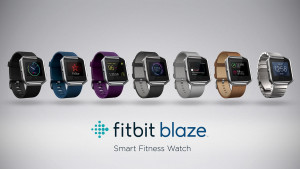 The day Fitbit announced the Blaze tracker at CES, a class-action lawsuit harshed the company’s buzz. (That, and an 18 percent drop in its stock price.) The claim was the heart rate monitor on the Fitbit Charge HR and Surge were inaccurate enough to cause harm. Fitbit pointed to its disclaimers, saying the monitor wasn’t meant to be a medical device after all.
The day Fitbit announced the Blaze tracker at CES, a class-action lawsuit harshed the company’s buzz. (That, and an 18 percent drop in its stock price.) The claim was the heart rate monitor on the Fitbit Charge HR and Surge were inaccurate enough to cause harm. Fitbit pointed to its disclaimers, saying the monitor wasn’t meant to be a medical device after all.
Maybe Fitbit should have just stood behind its product. Consumer Reports, the highly respected lab that tests product claims as its core mission, had liked the Charge HR and Surge. In light of the suit, it went back and put the trackers under a more challenging testing regimen, comparing its results with a Polar chest strap that’s considered the industry standard.
CR’s verdict: the heart rate monitors are as accurate as anything else on the market. Rather than being off by 25 beats per minute, as the suit claimed, researchers found that Fitbit’s trackers varied from the reference tracker by no more than 3 beats per minute.
No word (yet) from the lawyers.